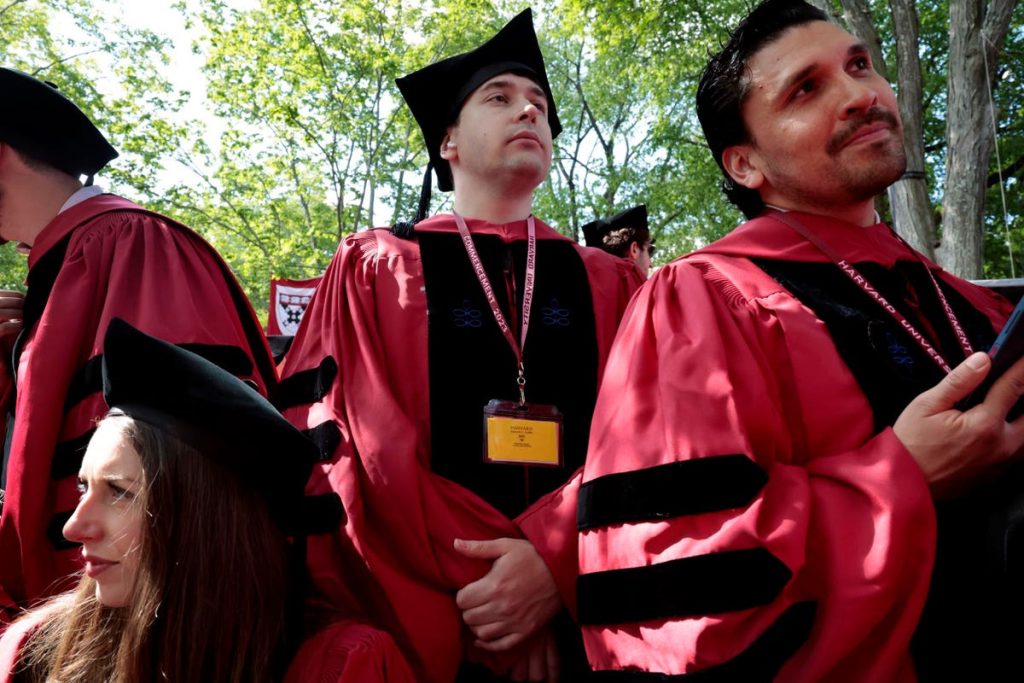This week, the New York Times ran an opinion piece from Ben Wildavsky. For anyone and everyone who follows higher education, it’s a must read.
In it, Wildavsky argues the easily proven – that a college degree matters and that all the headlines and hyperbole questioning its value are hooey. He’s right, of course. The benefits of a four-year degree are substantial and solid. Getting a college diploma will likely be the best investment anyone ever makes.
Not to brag too much, but some of us have been saying this for a long, long time.
But there’s more to the simple value of a college degree, undeniable as that is. That’s because finishing school matters, but where you finish school matters even more.
It is heresy. But, like all the best blasphemy, it is true – the name on the diploma is very, very important. And I don’t mean the name of the graduate. The name at the very top is bigger for a reason.
Just a few weeks before Wildavsky penned his paper for the paper of record, a trio of authors – Raj Chetty, David J. Deming, and John N. Friedman – published a working paper at the National Bureau of Economic Research (NBER). In their work, the team lays out evidence that the top colleges in America produce the best results in career placements and earnings.
They wrote, “Less than one percent of Americans attend these 12 colleges [the eight colleges in the Ivy League, the University of Chicago, Duke, MIT, and Stanford], yet they account for 15% of those in the top 0.1% of the income distribution.”
That’s no accident.
The NBER paper also says, quite rightly, that these elite schools disproportionately admit students from well-off families and circumstances. The authors point out how that pattern perpetuates wealth and class. And you’ll get no argument from me.
Still, that’s a different argument. The other argument – that these big-name, big-brand schools pay off exceptionally well – is actually less argument and more established fact. Even if you don’t know the data on the outcomes of these schools, there is a reason why getting into them is so competitive.
But, as Chetty, Deming and Friedman lay out, the data are compelling. They say that attending one of the 12 “Ivy-Plus” schools, “instead of a flagship public college triples students’ chances of obtaining jobs at prestigious firms and substantially increases their chances of earning in the top 1%.”
Smartly, the paper looks at students on the Ivy-Plus waitlists – comparing the outcomes of those who eventually got in with those who did not. The consequence of having one of those 12 names on your diploma are neither small nor subtle.
“Compared to attending highly selective flagship public colleges, students who attend Ivy-Plus colleges are 60% more likely to earn in the top 1%, twice as likely to attend a graduate school ranked in the top 10, and three times more likely to work at prestigious employers in medicine, research, law, finance, and other fields,” the paper says.
Noting carefully that these boosts are over and above even “highly competitive flagship public colleges,” that’s downright staggering.
And though it’s not on-pointe related, the NBER paper also says flatly, “SAT/ACT scores remain one of the best predictors of students’ post-college outcomes among available indicators.” Given the trend of schools going “test optional” that is – let’s just call it an interesting aside.
The point is that college matters. Even if your focus is so narrow as just counting dollars and cents, college pays off. And which college matters even more. Elite colleges bestow elite benefits on their graduates.
That America’s top and most prestigious colleges tend to admit students from wealthy families may well be a social problem, as the NBER paper suggests. But it’s no coincidence.
Wealthy families are not wealthy for no reason. Say what you want about them – they are not stupid. Most of them attended these same schools and have lived a lifetime cashing the benefits they provide. They are the data that going to an elite college pays off. They know that going to Harvard or Columbia or MIT matters, and they want that for their children and families.
The very fact that wealthy families want to stay wealthy by investing in the elite college game should tell us all we need to know about the actual value of a well-branded college education.
It should also make us wonder what good is being done by implying to everyone else that college is a bad bet. If we keep doing it, the only people who will cash in on college will be the people who need it least.
Read the full article here









